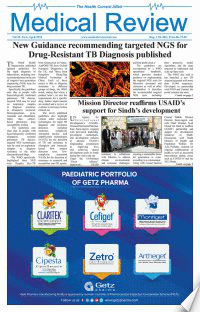By Dr. Haider Zaman, President, Pakistan National Centre for Aging
The World Health Organization (WHO), realizing the situation of older persons facing a variety of problems with growing age released a Policy Framework on Active Aging in 2002. Accordingly, active aging was defined as the process of optimizing opportunities for health, participation and security, in order to enhance the quality of life as people age. Under the said Policy Framework WHO introduced a global project called “Global Age- Friendly Cities” project aimed at improving the quality of life of older persons living in cities by preventing and correcting the barriers that increasingly encounter the people as they grow older. In an age friendly community as such policies services and structures related to physical and social environment must be designed to support and enable older persons to age actively, that is to live in security, enjoy good health, and participate fully in the society. As such the age friendly service providers, public officials, community and faith leaders and business people must:
- recognize the great diversity among the older persons
- promote the inclusion and continuation in all areas of community life
- respect their decisions and lifestyle choices and
- anticipate and respond flexibly to aging- related needs and preferences
On having information about the said project, the WHO office Geneva was contacted to consider Islamabad for inclusion in the project. WHO in response advised to collect and submit information on the functional state of certain specific areas, by having focus group discussions with:
- older men
- older women
- care givers and
- service providers.
The specific areas for discussion with focus groups in Islamabad city were:
- outer space and buildings
- transportation
- housing
- respect and social inclusion
- social participation
- communication and information
- civic participation and employment
- community support and health services.
The information on the above areas was collected as advised, and submitted to WHO Geneva during late 2006 which was considered positively, and it was advised that a Memorandum of Understanding (MoU) be signed by the concerned municipal body as well as PNCA with WHO for further action.
Therefore, the Chairman Capital Development Authority was contacted who appreciated the idea in view of likely benefits of the project and promised to extend necessary help and cooperation in this regard. Since it was likely to be a major future input in the functioning of CDA, aimed at promoting Active and Productive aging in Islamabad, which was likely to be equally beneficial to everybody else living in Islamabad, the proposal was discussed in the meeting of CDA’s Board of Directors, where it was appreciated and approved for further action. Following the decision of the BOD, the MOU was signed by the Director Municipal Administration (Mr Momin Agha) and mailed to WHO headquarter, Geneva. A similar MoU was also signed by Chairman PNCA, and mailed to WHO headquarters Geneva for further action.
LAUNCHING OF PROJECT GUIDE
Soon after receiving the necessary information from different countries, a document called “Global Age-friendly Cities Project Guide” was prepared by WHO, and stakeholders from different countries were invited to participate in the launching ceremony of the Project Guide in London (UK) on October 1 2007. It was found during the meeting that Islamabad, alongwith 34 other cities of the world, had been selected to implement the project, as a policy to promote Active and Productive Aging in the world. A list of selected cities from different countries is placed at A, while a gist of project features is placed at B for perusal.
Following the above details about the project, the matter to be brought to the notice of the government is that CDA has not yet started the implementation on the project, despite a number of written reminders. It was despite the fact that project implementation would have led to the following valuable outcomes:
- One of the main functions of CDA is land-use planning and project implementation, while land uses include:
– residential use
– commercial use
– right-of-way use
– social facilities use
– industrial and warehousing use
– recreational use.
A look at the list of project features is given in the project guide (gist of features enclosed) would indicate that most of these areas are very much part of routine functioning of CDA, within the jurisdiction of different land use activities. As such project implementation was highly likely to improve the professional capacity of CDA and enable it to serve efficiently, not only the older persons, but in fact, everybody living in Islamabad, without involving any extra budgetary requirements.
Since CDA has signed the MoU with WHO, which is a “legal binding” on CDA to carryout implementation of the project, as an ongoing policy (as indicated in the MoU) it would set an example for other cities in Pakistan, to follow the same policy in order to promote active and productive aging in Pakistan, need for which is highly desirable.
Nevertheless, it must also be realized that serving the elderly (one’s parents, close relatives, other older persons) is a duty in Islam, which must be carried out, for spiritual benefits here-after. It is therefore requested that:
- CDA may be directed to implement the Global Age-friendly Cities Project without further delay.
- Monitoring of the project implementation may be assigned to an independent professional group.
- Evaluation of the outcome of implementation may be assigned to still another professional group, so that benefit of the project could reach older persons as well as everybody else in Islamabad.
- The professional groups may be represented by government, WHO, concerned NGO that is PNCA and a professional expert (maybe a retired person).


